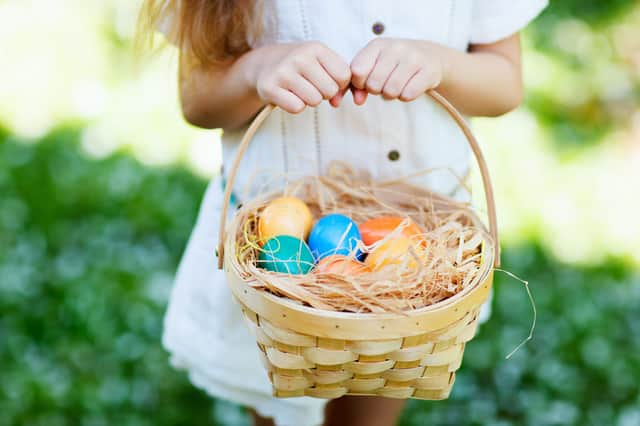This is why we eat chocolate eggs at Easter time


The sun is making a more permanent appearance, flowers are blossoming and the shops are stocked to the brim with Easter eggs, which can only mean spring has well and truly sprung.
And as the Easter weekend is now nearly upon us, with Easter Sunday falling on 4 April in 2021, people across the UK are preparing to tuck into a plethora of chocolate treats.
Advertisement
Hide AdAdvertisement
Hide AdConsuming as many chocolate eggs as we can has become the norm at this time of year - but have you ever wondered where exactly the tradition comes from?
Here is everything you need to know about the origins of the Easter egg.
Why do we have Easter eggs?
People haven’t always devoured chocolate eggs at Easter time.
In fact, eating normal eggs wasn’t permitted by church leaders during Holy Week, which is the name given to the days leading up to Easter.
Advertisement
Hide AdAdvertisement
Hide AdInstead, any eggs laid by hens were saved and decorated for children as gifts.
It is thought that this tradition has roots in Paganism. Eggs symbolise new life, and often appeared in pagan festivals celebrating spring.
And for Christians, the egg symbolises the moment in the Bible when Jesus is resurrected after his crucifixion.
As the tradition evolved over the centuries, chocolate versions of eggs became more popular as gifts for children than real eggs - for obvious reasons.
Advertisement
Hide AdAdvertisement
Hide AdThe first chocolate eggs appeared in France and Germany during the 19th century, but they were bitter and hard.
Yet as chocolate-making techniques began to improve, Cadbury produced the first modern chocolate Easter egg that we enjoy today in 1875.
The chocolatier used a pure cocoa butter that could be easily moulded into the smooth shape.
Hollow chocolate Easter eggs quickly became popular, and they still remain a favourite Easter tradition with many around the world.
Advertisement
Hide AdAdvertisement
Hide AdA lot of people also give up chocolate for lent, so indulging in some chocolate eggs became a common way to mark the end of the Christian fasting period.
What are Easter egg traditions?
As well as consuming chocolate eggs, there are other egg-related Easter traditions that are synonymous with the religious holiday.
Rolling hard-boiled eggs is a favoured activity, and for Christians this is a symbolic re-enactment of when the stone was rolled away from Christ’s tomb in the Bible.
Painting and decorating hard-boiled eggs is also a beloved tradition that children especially enjoy.
Advertisement
Hide AdAdvertisement
Hide AdThese two activities often go hand-in-hand, with children painting their eggs before finding a hill to roll them down until they crack.
An Easter egg hunt is another popular tradition many take part in over the Christian weekend.
Chocolate treats are hidden around the garden or the house, ready to be found by family members - and the winner is the person who finds more than anyone else.
Where does the Easter bunny come from?
The Easter bunny is said to arrive over the weekend, hiding eggs for when children wake up on Easter Sunday.
Advertisement
Hide AdAdvertisement
Hide AdThere are numerous tales surrounding the origins of the Easter bunny.
One is that the rabbit comes from the ancient pagan festival of Eostre, which honoured the goddess of fertility and spring.
Her animal symbol is believed to have been a rabbit, which traditionally represents fertility.
Meanwhile, in America, some people believe that the Easter bunny was introduced in the 1700s by German immigrants in Pennsylvania.
Advertisement
Hide AdAdvertisement
Hide AdTheir egg-laying hare, known as “Osterhase” or “Oschter Haws”, was said to lay colorful eggs as gifts to children who behaved well.
The Easter bunny's egg delivery then evolved over time to include treats such as toys and chocolate.